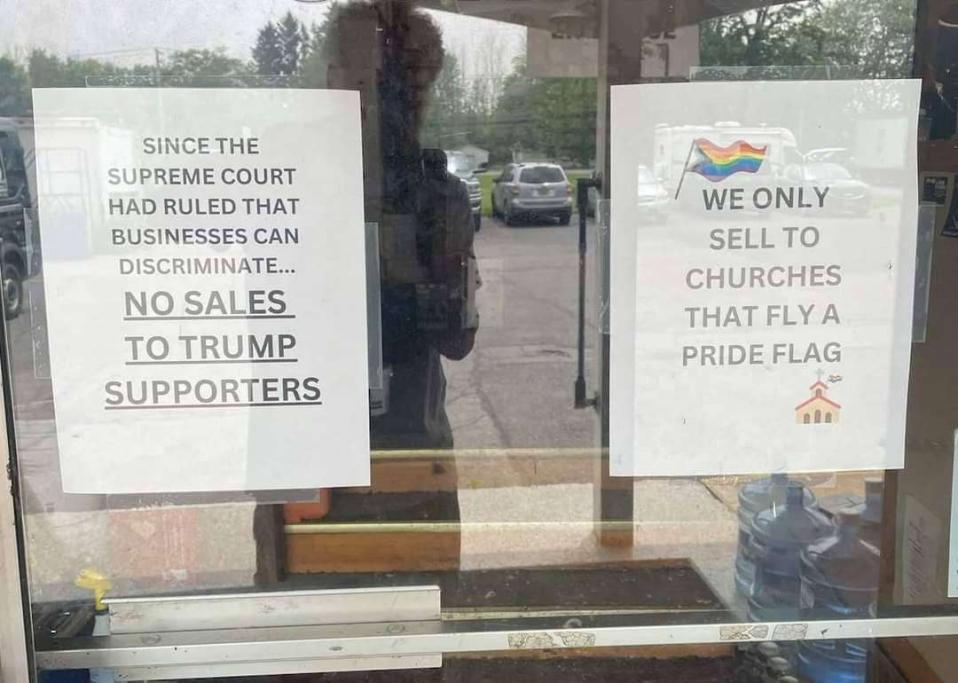this post was submitted on 01 Jul 2023
2549 points (94.3% liked)
Malicious Compliance
19597 readers
1 users here now
People conforming to the letter, but not the spirit, of a request. For now, this includes text posts, images, videos and links. Please ensure that the “malicious compliance” aspect is apparent - if you’re making a text post, be sure to explain this part; if it’s an image/video/link, use the “Body” field to elaborate.
======
-
We ENCOURAGE posts about events that happened to you, or someone you know.
-
We ACCEPT (for now) reposts of good malicious compliance stories (from other platforms) which did not happen to you or someone you knew. Please use a [REPOST] tag in such situations.
-
We DO NOT ALLOW fiction, or posts that break site-wide rules.
======
Also check out the following communities:
[email protected] [email protected]
founded 1 year ago
MODERATORS
you are viewing a single comment's thread
view the rest of the comments
view the rest of the comments

What you described was not the actual outcome of the ruling.
The wedding website designer did not give them a website with no mention of being gay, that they could fill in themselves. The website designer was allowed to fully refuse them any kind of website at all. Just like refusing a blank wedding cake because the couple is gay.
The justification of the decision was not in good faith. It stepped away over the bounds of protecting against compelled speech. And they deserve to feel the consequences.
The whole goddamn case was not in good faith.
The supposed customer for a gay wedding website turned out to actually be a married straight dude.
If the wedding designer has a "blank wedding site" package premade and refused to sell it to them then I don't think that's right. But if all of the websites are bespoke designs where the designer must create something for the couple, it's fuzzy.
Personally, I don't know. There is, and should be, a line between personal life and work life. But depending on what you do for a living, the line can be a thin one or a thick one.
For example, if I churn out hundreds of identical 3D printed characters and sell them at an open-air market, I shouldn't be allowed to single out a customer and refuse business just because I don't like the look of them. But if I'm a graphic artist, I shouldn't be compelled to draw something that I find objectionable. Eg: I might be a woman who has been sexually abused in the past, and someone wants a sexually graphic depictions of a sexual assault (like the Guns 'N' Roses "Appetite for Destruction" cover).
Those examples are easy to comprehend because they're extremes. The difficulty in interpreting the outcome of the case is trying to bring the examples closer to the center.
Can you refuse to sell handpainted greetings to someone you don't like? No. It doesn't matter that it's a creative endeavour. If you created the product without coercion, and are now selling them at a stall in your local town, it's not ok to refuse a simple transaction because you don't like the buyer. What if you also offer a service of writing a message in fancy calligraphy on the inside? Can you refuse to write something you find objectionable? I think so.
I don't think it comes down to who your customer is. I think it comes down to what you're being asked to do.
Edit: lol, what a typo. Thanks swype keyboard!
Someone else compared being gay to being racist, and now you're comparing being gay to sexual assault.
These are disingenuous comparisons at best, dangerously homophobic at worst.
WAT. I was giving extreme examples to illustrate that personal opinions sometimes have zero effect on your work, and sometimes they really really affect your work. And I specifically called out the fact that they were extreme examples:
How the hell was that comparing being gay to sexual assault? How come you didn't use the other example and accuse me of comparing being gay to 3d printing?
A sensible and reasonable analogy would be interracial marriage.
Should racist wedding business owners be able to refuse serving interracial marriages, on the basis of they don't believe in interracial marriage?